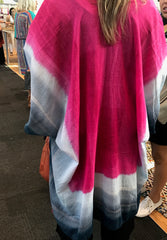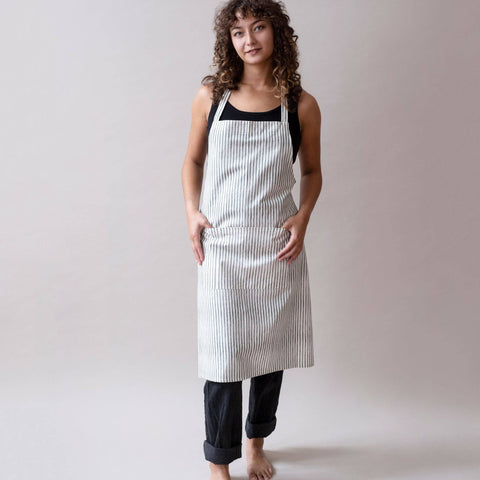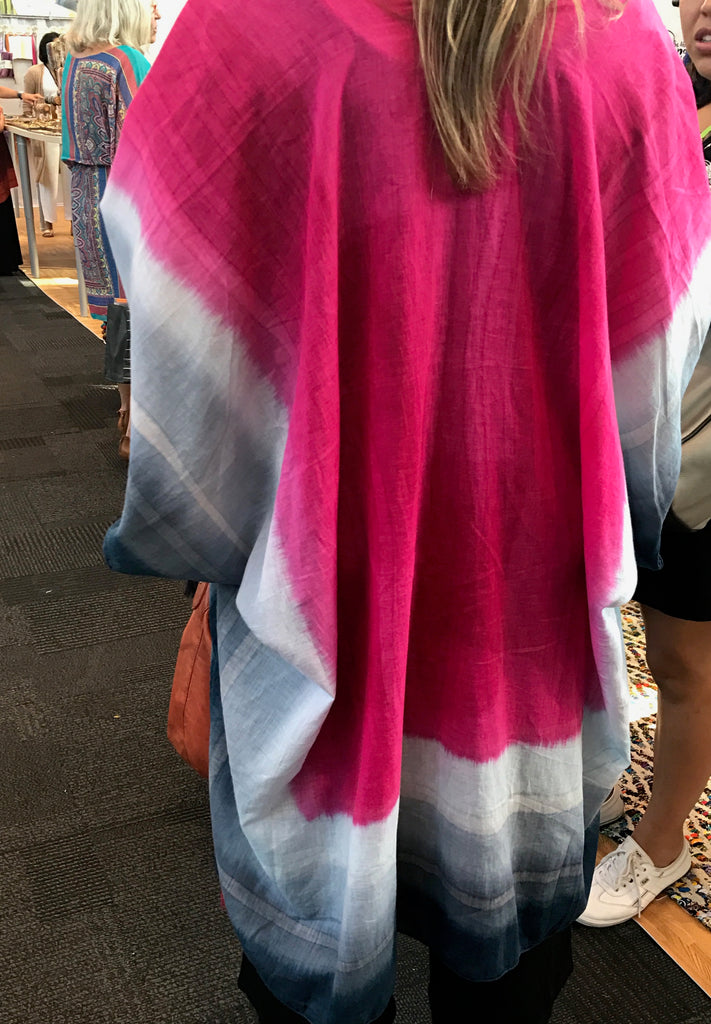Hand Painted Cotton Kimono
$ 18.00 $ 28.00
Love a good tie dye look?!! Then this dramatic and fun accent piece is for you. It can be worn all year long. Made by the women of Pushpanjali, a fair trade organization located in Agra, India that provides medical support to disadvantaged people living in villages as well as educational support for girls.
- 100% cotton
- Tassels on corners
- Hand wash separately in cold water recommended before wearing to minimize color transfer
- 33" L x 44" W from sleeve to sleeve (83.8 x 111.7 cm)
- One size fits most
- Colors: Pink/Navy, Green/Navy
- Handmade in and fairly traded from India
- Due to the dyeing process, natural variations in color will occur.
Made by: Pushpanjali Fair Trade
Pushpanjali is a fair trade organization based in Agra, India. Founded in 1982, it started with 5 producers; over the years the number of producers has increased considerably. Their mission is to improve the living conditions of local craft producers by empowering them through sustainable work, fair wages, profit sharing and also by providing credit.
Pushpanjali produces scarves, bags, accessories, holiday ornaments, nativities and photo frames. Promoting the cultural wealth and identity and recognizing local producers craft mastery is also at the heart of what Pushpanjali does, as a key enabler for producers’ empowerment. The Pushpanjali scarf production team is composed of 12 women all living in the same area of Agra, in Ajam Para. They started working with Pushpanjali 3 years ago, and got a chance to generate an income by themselves, which is extremely rare in that area for women. They are in charge of quality control for the scarves, of cutting the extra threads and knotting the scarves. When orders are there, they work every weekday while their children are at school, representing 6 to 7 months of full time work for them.
Pushpanjali supports educational and medical programs in rural villages, allowing girls to attend school who otherwise could not afford it. When being asked what Pushpanjali did for them, the increased financial autonomy comes at first. With the fair wage they receive for their work, the Ajam Para women are able to contribute to their family needs, especially with clothes. They have good working conditions, and if they have one request for improvement, it is to ask for business growth and increased orders, so they can increase further their contribution to their family livelihoods.









